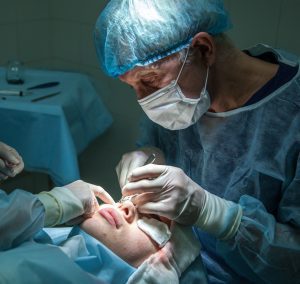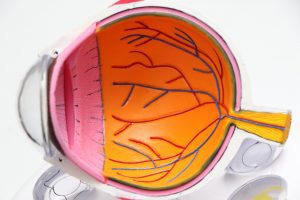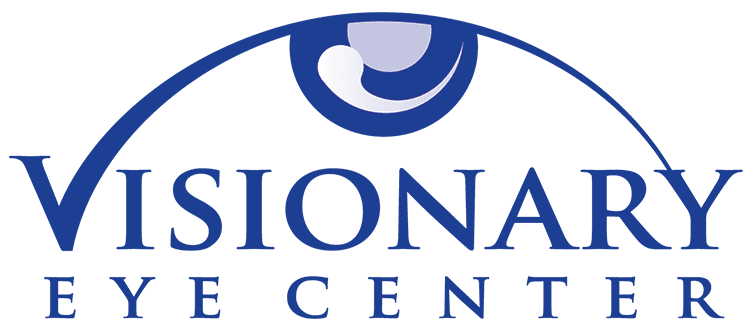SHOP DRY EYE CARE TODAY!
Use code VISIONARYEYE20 at checkout for 20% off!
The world of vision correction has evolved dramatically over the years. From the rudimentary practice of radial keratotomy, eye care has embraced monumental advancements, culminating in the development of Photorefractive Keratectomy (PRK) and LASIK (Laser-Assisted In Situ Keratomileusis). Visionary Eye Center, located in the heart of Reno, NV, has been at the forefront of this evolution, offering a spectrum of cutting-edge solutions for those seeking clearer, sharper vision. Visionary Eye Center are the experts when it comes to the LASIK procedure in Reno.
The early seeds of modern refractive surgery sprouted with the invention of PRK, followed by the birth of LASIK eye surgery. These techniques, far safer and more reliable than radial keratotomy, relied on the precision of lasers to reshape the cornea - the eye's front surface. The differences between the two lay in their application: LASIK involves the creation of a flap laid over the treated area, while PRK applies the laser directly onto the cornea, eschewing a flap. The choice between the two often hinges on individual needs, with LASIK offering a speedier recovery and PRK catering more towards those with larger prescriptions.
But innovation didn't halt there. The advent of LASEK (Laser Epithelial Keratomileusis) introduced a novel technique, gently sliding the epithelium off the eye's front, then replacing it after treatment. This method, while retaining the advantages of PRK and LASIK, significantly reduces dryness compared to LASIK, making it a compelling option for patients prioritizing comfort during recovery.
For individuals with higher prescription requirements or those uneasy with permanently removing corneal tissue, the introduction of the Implantable Contact Lens (ICL) has been a game-changer. This technique involves inserting a small lens between the iris and the eye's natural lens. Notably, the procedure is reversible and inflicts minimal trauma on the eye, providing an attractive solution for patients seeking a trial before a more permanent decision.
The landscape of vision care also offers hope for presbyopic patients, or those over the age of 40. Corneal inlays, like the Kamra or Raindrop, can be inserted into the cornea, creating a pinhole effect that extends the eye's depth of focus and restores near vision. Simultaneously, refractive lens exchange provides another avenue. In this procedure, the natural lens of the eye is replaced with an intraocular implant lens – a procedure akin to cataract surgery. With various setup options available, including distance, monovision, and multifocal setups, presbyopic patients can regain control over their vision.

For those wary of surgery but eager to free themselves from the confines of glasses or contact lenses, Visionary Eye Center is proud to offer orthokeratology. This non-surgical intervention represents an alternative to refractive surgery, and can be an excellent solution for patients seeking another path to visual freedom.
At Visionary Eye Center, we believe in a personalized approach to eye care. As an independent provider, we aren't limited by the constraints of a vertically integrated multi-practice chain, big box store, or national franchise. Our independence empowers us to develop strong doctor-patient relationships, rooted in the belief that every patient deserves custom solutions tailored to their unique visual needs.
Our commitment to personalization extends to our embrace of modern technology. We're able to leverage the latest breakthroughs in eye care, allowing us to offer a wide variety of options to our patients, from state-of-the-art surgical interventions to high-quality eyewear products. Far from being stuck with outdated bulk products, our patients enjoy access to the best the world of vision care has to offer.
In our pursuit of providing unparalleled care, we operate with a firm conviction: an educated patient makes superior health decisions. At Visionary Eye Center, patient education is not an afterthought, but an integral part of our approach. Our dedicated team of professionals endeavors to enlighten every patient about their treatment options, empowering them to make the best choices for their eye health.
We invite you to navigate our website and learn more about the wealth of information we've curated about eyes and vision. For the latest tips, offerings, and updates, follow us on our Facebook and Instagram pages. We eagerly anticipate welcoming you at our office and partnering with you on your journey towards better vision. At Visionary Eye Center, our commitment to you extends beyond simple vision correction—we aim to provide vision for life.

LASIK eye surgery can be used to achieve 20/20 vision or better, as an alternative to eyeglasses or contact lenses. This is a type of laser eye surgery, and it works best for patients who have a moderate degree of refractive error and no unusual vision problems.
LASIK surgery involves first numbing the eyes with drops and taking a mild sedative medication, then the surgeon uses a special type of cutting laser to precisely alter the curvature of your corneas. As the laser beam pulses, a tiny amount of corneal tissue is removed to allow the surgeon to flatten the curve of your corneas or make it steeper to correct your vision.
There are multiple variations of LASIK surgery, but the most common procedure involves the surgeon creating a flap in the cornea and raising it up before reshaping it. The flap is then placed back into its original position, and vision recovery usually only takes 1 to 2 days. Sometimes only a very thin flap is raised or no flap is raised or even used at all; it really depends on your individual circumstances and preferences.
LASIK surgery has many benefits when it comes to correcting your vision almost immediately, is long-lasting, and can continually be improved. Here is a summary of the top benefits of LASIK that will play a role in your decision:
Your current and past eye health, and any disorders that run in your family will play an important role in whether or not it’s a good idea to get LASIK surgery, which your eye surgeon will ask you about. The following are some complications that could result in poor outcomes after the LASIK surgery, along with side effects of the surgery, that can help you to weigh if LASIK is the best option for you.
Pre-existing eye health conditions that can cause complications with LASIK:
Possible Side Effects and Complications:
 When considering LASIK surgery, there are several personal health conditions and medications you take that may not make you a good candidate, so your surgeon will review and assess all of these to determine if the procedure is right for you. The following are some factors that would NOT make you a good candidate for LASIK; if you don’t have these, you are more likely to move forward with the surgery, just always check with your surgeon first:
When considering LASIK surgery, there are several personal health conditions and medications you take that may not make you a good candidate, so your surgeon will review and assess all of these to determine if the procedure is right for you. The following are some factors that would NOT make you a good candidate for LASIK; if you don’t have these, you are more likely to move forward with the surgery, just always check with your surgeon first:
When seeking out a LASIK surgeon, you can start by asking friends and family members who have had successful procedures for suggestions, along with an eye care professional. Your local LASIK Reno provider, also voted best optometrist in Reno, is Visionary Eye Center. If you’re ready to find out if LASIK is right for you, schedule a Reno LASIK Procedure Consultation at Visionary Eye Center and contact us for any questions!
 775.587.3892info@visionaryeyecenter.com8175 South Virginia Street Suite B-900
775.587.3892info@visionaryeyecenter.com8175 South Virginia Street Suite B-900